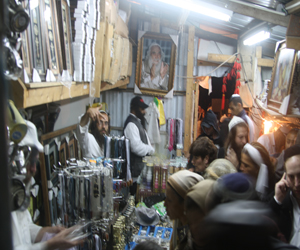Monotheism In Kabbalah
A belief basic to Kabbalah is the unity of God. One of the concerns connected to Kabbalah scholarship is that kabbalistic concepts will be misunderstood and will lead to a belief in the duality of God. Dualism is the belief that there are opposing forces in the world: good and evil.
Unchanging God
The Kabbalistic model of the Ten Sephirot, those channels for the Divine life-force, is one that is linked to the ten levels of Creation. Each of these levels concerns a means through which one can perceive God. There is the concern that some will understand this to mean there are ten different gods. However, the Kabbalistic system is that God does not change and is one, but our understanding of God can undergo changes as we achieve each level of understanding.
Human Perception
In addition to the ten ways the Sephirot help one to perceive God, the Kabbalah also talks about the fact that there is a feminine and a masculine side to God. However, the Kabbalah does stress that God is in the ultimate possession of unity, being infinite and without an end: the Ein Sof. In other words, God is neither feminine nor masculine but rises above any human perception or attempt at definition.
Remains Hidden
There is a further kabbalistic concept known as Tzimtzum. This means a state of "restriction." In this sense, God has the ability to remain hidden but can be revealed through certain means and these means of revelation are the foundation stones for Creation.
Mirror Images
The Zohar, a later kabbalistic work which takes center stage for scholars of Kabbalah, could be misunderstood to suggest a duality to the nature of God. The Zohar ascribes all evil to a force known as the Sitra Achra (the other side). The Sitra Achra emanates from God. The description of this aspect includes the idea that the divine emanation has negative (left) and positive (right) sides which resemble mirror images in a constant state of battle.
Though the negative image exists within the cosmology of the Sephirot, the Sitra Achra holds no sway over the Ein Sof. Rather, the Sitra Achra exists to provide man with freedom of choice—the power to choose good or evil. The force of the Sitra Achra is not a force that opposes God, but instead is viewed as the reflection of the internal moral dispute that exists within man as he tries to choose between the moral good or surrendering to his baser instincts.

